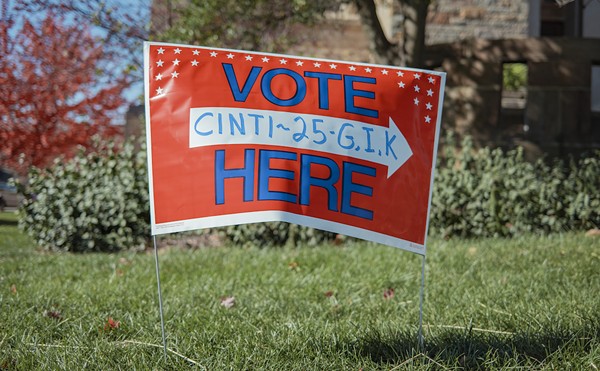Here we go again.
This week’s Porkopolis column in the CityBeat issue that hit the streets today details how a recent plan by two Hamilton County commissioners to close a deficit in the county’s stadium account by delaying a payment to Cincinnati Public Schools was pushed despite knowing school officials wouldn’t agree, thus scuttling the proposal.—-
Now the same two commissioners – Democrat Todd Portune and Republican Greg Hartmann – again have proposed a plan with little or no chance of success.
The pair today unveiled their latest plan, which involves asking state lawmakers to let Hamilton County impose a sales tax on cigarettes, similar to one used in Cuyahoga County. Although a specific amount wasn’t mentioned at the commissioners’ meeting, it’s expected that a 34-cent per pack tax would raise about $15 million annually, just enough to cover a property tax rebate for homeowners.
If Portune or Hartmann had bothered to do a little research beforehand, however, they would’ve learned that a prominent state senator from the area adamantly opposes enacting any such tax.
State Sen. Bill Seitz (R-Green Township) wrote a letter to commissioners this afternoon informing them that he would actively lobby against the proposal in the statehouse.
“As you know, I have been very vocal in supporting all of Hamilton County’s initiatives at the Ohio Statehouse, several of which are currently pending and awaiting a full vote in one chamber or the other,” Seitz wrote. “I truly want to be of as much assistance as I can be because I realize the grave fiscal condition in which the county finds itself.
“However, I would recommend that you save yourselves a 44-cent stamp before writing us on this latest initiative. There is no way on God’s green earth that I would ever support such poor public policy as to grant localized authority for higher cigarette taxes. I have steadfastly opposed this when other counties sought that authority, and I have convinced a majority of my colleagues that we simply cannot afford to allow local cigarette taxes when the state depends on state cigarette tax revenues for the third largest source of funds for our general revenue fund.”
Seitz explained, “As localized taxes go up, the state’s tax revenue from cigarette sales goes down. The state, as you may know, is almost as broke as you are. Therefore, we are categorically unwilling to entertain any proposal from any county for any cigarette tax increase of any degree of magnitude.”
That seems pretty clear.
To help convince voters to approve a half-cent county sales tax increase in 1996 to generate cash for building new Reds and Bengals stadiums, commissioners pledged that 30 percent of stadium-related sales tax revenues collected would be rebated to property owners. Because the estimated growth in sales tax revenues has been less than expected, though, the stadium account is facing a $13.8 million deficit next year, which would rise to a $25 million shortfall in a few years.
The third county commissioner, Democrat David Pepper, has proposed reducing the amount of the property tax rebate, a stance opposed by Portune and Hartmann.
Regardless, the latest proposal is a reverse Robin Hood scheme that is even more regressive than the initial ’96 sales tax hike and offends the conscience.
A sales tax affects low-income residents more than others, and the so-called “sin tax” is no different. In essence, the cigarette tax would be used to provide a rebate for homeowners, and the only homeowners who receive a significant rebate are wealthy ones.
For example, attorney and behind-the-scenes powerbroker Stan Chesley owns a mansion in Indian Hill valued at roughly $10 million. He receives a tax rebate of about $6,000 under the stadium tax deal. By comparison, the owner of a $100,000 home receives only about $50.
No matter how you spin it, the cigarette tax means average citizens would be paying for a tax break for fat cats, as if they needed any more aid and comfort from our politicians.
Some observers wonder why Portune and Hartmann keep proposing plans they know have no hopes of approval. The more cynical among us think it could be to appear to the public like they’re actually doing something while avoiding the tough but inevitable decision that needs to be made.





